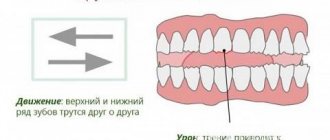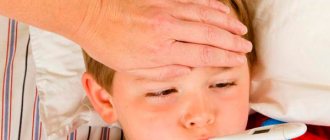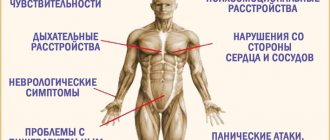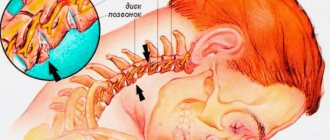When your baby experiences something very exciting in his life, he may develop a nervous eye tic. First of all, it is characterized by involuntary contraction of the eye muscles. If this process is started, then once the work in your child’s body is disrupted, it can cause unpleasant diseases. Therefore, it is recommended to closely monitor your child, his workload at school and in clubs, in order to take appropriate action if necessary.
Symptoms
A nervous tic in a child has a number of natural symptoms:
- The tick has a clear rhythm. Keep in mind that if a child blinks frequently, but is clearly overtired or the air in the room is very dry, and a clear rhythm is not visible, this is most likely not a nervous tic;
- Motor hyperkinesis in children most often appears in preschool children. According to doctors, such tics occur because at this age the child’s psyche is actively developing. And any psychological trauma can lead to a nervous tic.
Which child can develop a nervous tic?
At risk are children whose relatives have obsessive movements or severe hereditary defects of the nervous system.
The time of appearance of children's tics is from 3 to 8 years, when the child begins to learn new skills and determine his place in the human hierarchy. Movement or motor tics always appear first, and after some time sound or vocal tics (moans, pronouncing individual sounds or even whole words) may appear.
Tics are quite common in children; up to 25% of all children of the same age experience twitching in one form or another. From one and a half to 10% of children suffer from tics for longer than 1 year, and this disorder is considered chronic. Boys develop twitching 4 times more often than girls.
Doctors believe that children who have a genetic predisposition to this are at risk. Children who have suffered any kind of cerebral harm during pregnancy and childbirth or who suffer from some form of perinatal encephalopathy are at greater risk than others. All the harm suffered by the baby in the first year of life creates a certain predisposition to subsequent disorders.
In the presence of organic inferiority, the following factors can provoke the development of tics:
- any stress (challenge to the board, unsuccessful answer, actually going to school, quarrel between parents, long-term conflicts at home;
- excessive parental demands, the desire of parents to ensure that the child learns better than others or does everything flawlessly;
- fright;
- “horror films” and horror stories - films of dark and mystical content, frightening stories and books;
- infections, especially conjunctivitis, when the child notices discomfort in the eyes;
- any injuries, but especially traumatic brain injuries;
- educational overload;
- excessive extracurricular activities;
- long-term medication use;
- prolonged and uncontrolled stay in front of the TV;
- prolonged use of video games, when the child experiences constant monotonous visual overload, combined with insufficient general motor activity.
Causes
Lately, a child who blinks frequently is a fairly common problem in today's crazy world. Only a doctor can determine the cause of blinking. Assumptions could be:
Nervous tic
The most common cause is a nervous tic. It appears if the child is overworked or very tired (physically and mentally). Also due to nervous tension associated with something that worries the baby very much. It could be quarrels between parents, or something the child saw on TV or on the street, and more.
In this case, it is recommended to develop a routine for the child to relieve stress so that the child is less tired and has the opportunity to rest. If this is a schoolchild, then when you come home from school, you can lie down for a while, sleep, or play with friends in the yard. For a while, you should not visit very crowded places - supermarkets, shopping centers, theaters, cinemas.
1.5-2 hours in the fresh air, a sound sleep in a ventilated room will help the baby calm down. In the summer, it is useful to go out of town to take a break from the city and its fast pace.
The child shudders in his sleep. What to do?
Why does a newborn shake in his sleep? There may be several reasons. Most of them do not require correction. If your child wakes up when startled, a few time-tested tips will help you.
At the end of the article, cases when you need to see a doctor are described.
Overwork and excess information
The psyche of a newborn gradually adapts to new conditions. An excess of new impressions, the arrival of guests, noisy conversations, games of older children lead to overwork of the nervous system. In such cases, the child cannot fall asleep for a long time, although he feels tired. If a sleeping baby starts more often than usual, the reason is overtiredness.
The child should spend two hours before bedtime in a calm environment. It helps when, before putting the baby to bed every day, you perform the same actions in the same sequence. The so-called ritual. For example: we bathe, put him in a crib, give him milk, hum a lullaby or stroke his back.
This helps the baby relax, calm down and prepare for sleep.
Sleep phases in newborns are distributed differently than in adults
The most common reason. In a state of sleep, a person goes through several phases. Between falling asleep and waking up, two phases alternate several times: fast and slow.
It is in the fast phase that shudders are observed in most sleeping people, children and adults. In children, the phases of shallow sleep are longer and therefore more noticeable.
In this regard, parents often wonder why their infant shudders in his sleep.
For comparison:
| Sleep phases | Babies | Adults |
| Fast | up to 30 minutes | 5–10 minutes |
| Slow | 30–60 minutes | 80–90 minutes |
In the fast phase, the information received during the day is processed, the infant’s nervous system is formed, and adaptation mechanisms are activated. Conclusion on this point. If the baby periodically shudders in his sleep, then the restful sleep phase begins within 30 minutes - this is the norm for a healthy child.
Myoclonus of sleep onset. Every person has experienced it at least once in their life
This is a condition when a sleeping person has a feeling of falling, he shudders and suddenly wakes up. It also happens during periods of REM sleep. The mechanisms of sleep are not fully understood, but in this case there is also no cause for concern. It is enough to follow the following recommendations: Maintain the temperature in the bedroom 20–22ºС. Regularly ventilate the room.
Remove the TV and computer from the nursery. Also, an hour or two before bedtime, the child should not be in the room where the TV is on. Rapid changes in video and sounds have a bad effect on the baby’s nervous system. Warm baths before bedtime with a decoction of medicinal herbs are helpful.
· I think you understand that the child needs to be fed on time and the diaper changed before bedtime.
· Loud or harsh noises Increased noise levels cause anxiety and feelings of insecurity. It is advisable to create a calm and friendly atmosphere in the house; repair work should be postponed or carried out when the child is out for a walk.
What causes should be ruled out first · Fever It is imperative to make sure that the baby does not have a fever. The heat can cause involuntary movements and even cramps. · Digestive problems If your baby starts in his sleep, digestive problems may also be a cause for concern.
Watch the baby. If he arches his back, pulls his legs towards his stomach - these are signs of increased gas formation. There are many tips for this case: pick him up in a “column” and rock him, stroke his tummy, apply a warm diaper. Perhaps this will help someone. First of all, a nursing mother needs to adjust her diet.
Symptoms are relieved with children's medicines for gas formation. Synthetic medicines are produced and those based on herbal components are also quite good. Biological products also help solve this problem. · Teeth cutting Newborns do not cut their teeth, but if the child is 5 months old, this problem also needs to be ruled out.
Signs: increased secretion of saliva, the child pulls any objects into his mouth and tries to chew them.
In this case, special gels are also produced that relieve pain.
How to help your child if he wakes up from movements in his sleep
If your baby shudders in his sleep, try swaddling him before putting him to bed. Not the way our mothers and grandmothers did it. If your baby moves his legs in his sleep, simply swaddle his legs and secure the diaper on his tummy. You should not swaddle tightly, but you will still have to limit your movements. If your arms tremble, try swaddling up to your shoulders.
The baby definitely won’t like it at first - babies don’t like diapers and clothes. However, if you rock the baby in your arms or in a stroller, he will sleep longer than usual. Works in 90% of cases.
The psychological factor also helps in this method. When a newborn is limited in movement, he feels protected.
After all, he spent nine months before birth in a confined space.
In what cases should you consult a doctor?
- The baby shudders in his sleep and wakes up more than 10 times a night.
- During sleep, the child twitches rhythmically and quite often, the movements resemble trembling.
- After waking up from shaking, the baby cries and cannot calm down for a long time.
- The baby shudders and cannot fall asleep for a long time, even with complete silence in the house.
- If you notice at least one of the listed signs in your child, you should definitely consult a doctor.
In other cases there is no cause for concern. The child grows and develops normally.
If you are still concerned about this issue, be sure to ask your doctor during your examination. Advice: in some cases, consulting one specialist is not enough. Look for a good doctor in your city. Agree, there is nothing more important than the health of the child.
With age, jerks during sleep gradually become less noticeable and disappear completely by four to six years.
Health to you and your children.
Source: https://kindersurpris.ru/rebenok-vzdragivaet-vo-sne/
Treatment
As you understand, there are two ways of treatment - medication and folk remedies
Medication
The first thing you need to remember is that a doctor can prescribe medication for your child, based on the diagnostic tests performed.
And second, the medications that are usually prescribed to treat tics are sedative in nature. They may prescribe simple ones: valerian, motherwort or more complex medications.
Reviews from experienced parents
Oksana, daughter Irina (9 years old), son Maxim (16 years old)
With our age difference in children, nervous tics from constant overwork were more common in me. Although when the eldest went to first grade, and I had just given birth, I noticed a nervous tic in his eyes. Since I didn’t understand why this happened, I first went to the pediatrician, then to the neurologist - we found out the reason and the tic went away. In our case, it was a big moral burden regarding the birth of a second child and going to school at the same time. I began to pay more attention to my son, and my daughter went for walks with her grandmother or father more often. After my son got stronger and his tics went away, I realized that I couldn’t give myself completely to just one child. It is important that they both receive our love and care.
Alla, son Vadim (6 years old), Veniamin (4 years old)
In our family, teak appeared as soon as the kids began to need to share their toys. Moreover, the eldest reacted very emotionally. Although I understand that for us parents, most of their situations seem funny, but in reality it is not so simple. It is important to appear promptly in conflict situations and take the necessary actions. Then the psychological situation in the family and between children will be more comfortable.
How to treat?
Let's say you notice that your child is twitching and blinking his eyes more often than usual. What to do? Mild primary tics usually go away on their own. But in case of serious manifestations, it is necessary to prescribe a course of treatment as quickly as possible. Otherwise, the situation will only progress.
There are several types of treatment for nervous tics:
- non-medicinal;
- medicinal;
- folk
Non-drug therapy helps restore the activity of the nervous system and establish material metabolism. In addition, it normalizes the child’s mental and emotional state. With a nervous tic, the baby requires special care. The main thing here is to create a calm environment at home. A proper daily routine is also important. The child should be provided with adequate rest and quality nutrition. Make sure your baby doesn't overexert himself.
Drug treatment involves the use of drugs that act on the principle of sedatives. The doctor may also prescribe medications that help normalize blood circulation in the brain. Good results are given by Novo-Passit, Cinnarizine, Phenibut and Diazepam. You can also try giving your child sedatives, such as motherwort. You can prepare the medicine yourself. To do this, take two tablespoons of crushed dry plant and pour 200 ml of boiling water. The mixture is left to infuse for 2 hours. After this it is filtered. Children aged 7 to 14 years are given a teaspoon of tincture 30 minutes before meals three times a day. A good effect is also observed from chamomile tincture. Place 1 tablespoon of crushed dry leaves into a thermos and pour boiling water over it. In this state, the mixture is infused for three hours and then filtered. Take a quarter glass 30 minutes before meals three times a day.
Results
When a child has a nervous tic and he often blinks, coughs (that is, it manifests itself in the form of a vocal nervous tic), it forms on the neck, arm (no matter where - the main thing is if you notice it yourself, otherwise from children 1 year of age you are unlikely to hear a complaint ) or nervous tics in a 7-year-old child are preventing him from studying in the first grade - immediately contact a doctor, he will conduct the appropriate diagnosis and prescribe treatment if necessary.
Photos and videos: free Internet sources
Why the eye twitches: diseases
Facial hemispasm is a pathology in which the facial nerve is damaged. On one side (left or right) the muscles begin to twitch. The twitching is usually unprovoked. But in some cases they can be caused by nervous shock, fatigue, or even conversation.
Nystagmus can also cause the eye to twitch on the left or right side. Involuntary oscillation of the eyeball can occur in the morning, afternoon and evening, regardless of the time of day. Tics may have a certain rhythm or speed. A concomitant phenomenon may be damage to certain areas of the brain.
Physical illnesses may also make you wonder why your eye is twitching. This includes both facial trigeminal neuritis and the last stage of a brain tumor.











